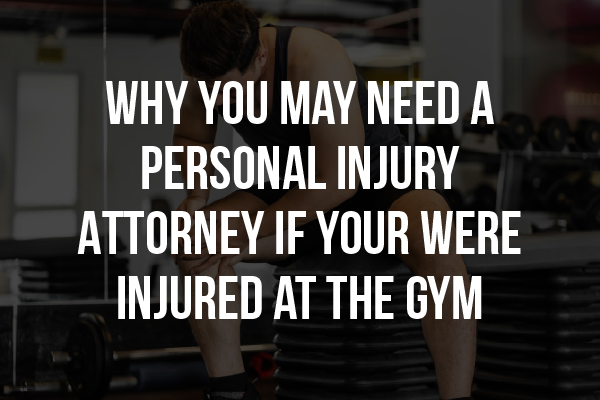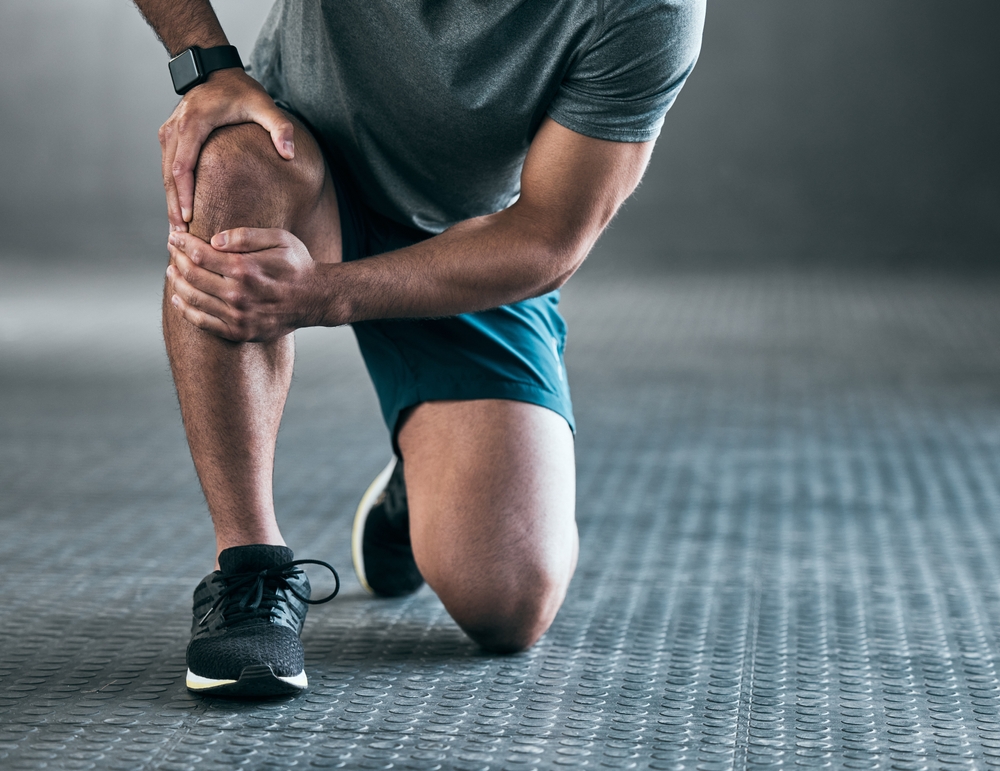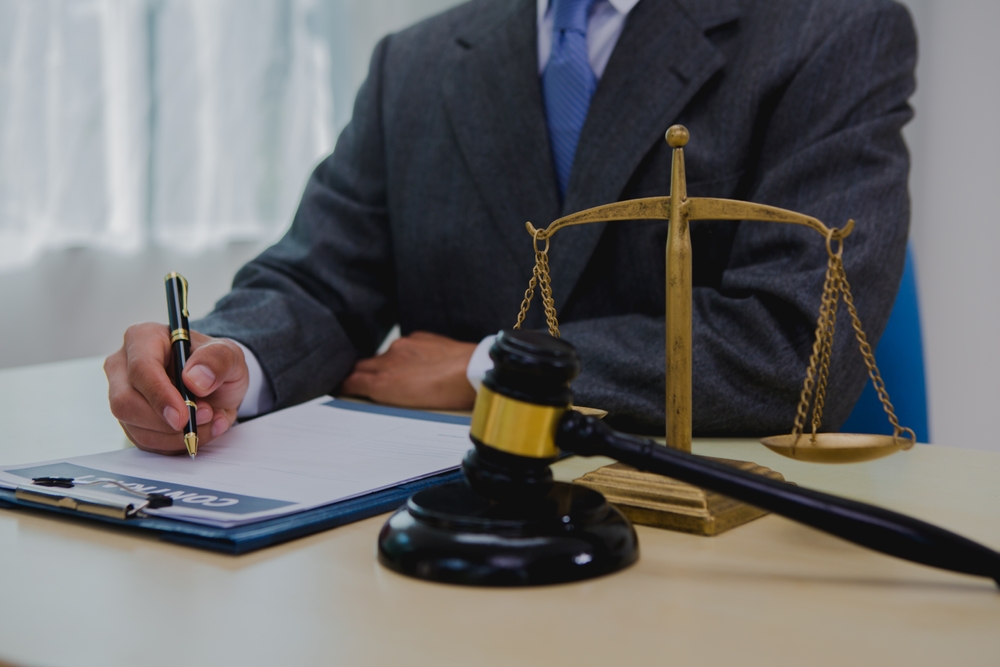
A personal injury lawyer can help when gym injuries leave members facing unexpected harm. Equipment failures, lack of supervision, and unsafe conditions happen far more often than fitness facilities admit, causing serious injuries to people who only wanted to improve their health.
Gyms often include broad liability waivers in their membership agreements, but Texas law limits what those waivers can block. Certain negligence claims may be restricted by a well-drafted waiver, but gyms remain responsible for gross negligence, intentional misconduct, and violations of Texas law.
An experienced personal injury lawyer knows how to challenge these waivers and prove that gyms must maintain safe environments regardless of the language in their contracts.
If you were injured at a gym in Arlington or Tarrant County, Branch & Dhillon is ready to stand up for your rights and hold negligent fitness facilities accountable. Call (817) 533-3430 for a free consultation about your gym injury case.
Key Takeaways About Why You Need an Attorney if You Were Injured at a Gym
- Liability waivers signed at gyms don’t protect against gross negligence, intentional harm, or violations of statutory duties under Texas law.
- Gyms owe members duties to maintain equipment, provide adequate instruction, and keep premises reasonably safe despite membership agreements.
- Common gym injuries from equipment failures, slip hazards, and inadequate supervision may lead to valid claims if there is evidence the gym knew or should have known about the unsafe condition and failed to address it.
- Texas premises liability laws apply to fitness facilities, creating obligations beyond what membership contracts attempt to limit.
- Evidence preservation becomes vital immediately after gym injuries, as facilities may alter conditions or destroy surveillance footage quickly.
How Branch & Dhillon Personal Injury Lawyers Handle Gym Negligence Cases
Branch & Dhillon brings aggressive representation to gym injury cases throughout Arlington and the Dallas-Fort Worth area, understanding the unique challenges these claims present. Fitness facilities hide behind liability waivers while maintaining dangerous conditions that injure unsuspecting members.
Our personal injury lawyers know that Texas law doesn’t allow gyms to contract away all responsibility for safety. We look past boilerplate defenses to uncover consistent patterns of negligence.
Whether you were injured at a national chain near Parks Mall or a local CrossFit box on Cooper Street, we fight to prove the facility’s negligence caused your injuries despite any waivers you signed.
How a Personal Injury Lawyer Overcomes Gym Liability Defenses
Branch & Dhillon uses proven strategies to challenge the assumption of risk and waiver defenses gyms often raise. We analyze waiver language for flaws, investigate whether staff actions exceeded what the waiver covers, and expose instances of gross negligence that no contract can excuse. Our investigations often reveal safety violations that gyms attempt to conceal.
When Arlington gym facilities neglect equipment maintenance or fail to train staff properly, we document those failures. This evidence helps us show that an injury was not just an accident but the result of negligence, overcoming the limits gyms attempt to place in their contracts.
Texas Gym Liability Waivers and Their Legal Limits Explained
Gym liability waivers attempt to shift all injury risk onto members through broad legal language that seems to eliminate any possibility of lawsuits. These contracts claim members assume all risks and release facilities from any liability for injuries.
However, Texas law under the Texas Civil Practice and Remedies Code limits waiver effectiveness. Courts scrutinize these agreements carefully, recognizing the unequal bargaining power between gyms and members who must sign to access facilities.
Waivers cannot shield gyms from liability for gross negligence. In Texas, gross negligence means an act or omission that involves an extreme degree of risk, known to the gym, where the gym shows conscious indifference to member safety.
For example, if a gym allows members to use equipment it knows is unsafe, or staff ignore obvious hazards, that conduct qualifies as gross negligence regardless of any signed waiver. Likewise, intentional misconduct is never protected by a waiver.
Texas Express Negligence Rule for Gym Liability Waivers
For liability waivers to protect against ordinary negligence in Texas, they must meet strict express negligence requirements. The waiver must clearly state that the gym is being released from liability for its own negligence using specific language.
Broad disclaimers that try to place all risk on gym members are often unenforceable. Some waivers fail because they are poorly drafted or use overly broad language.
Personal injury attorneys carefully review these agreements to identify flaws that may preserve your ability to seek compensation even after signing a membership contract.
Common Gym Injuries That Require a Personal Injury Lawyer

Gym injuries can range from minor muscle strains to severe trauma that requires long-term medical care and rehabilitation. Recognizing common injury patterns is important for distinguishing between accidents caused by facility negligence and those that are simply part of athletic activity.
Equipment failures, poor supervision, and unsafe conditions occur more often than gyms acknowledge, leaving members seriously injured while trying to stay healthy. Snapped cables on weight machines, treadmills that suddenly speed up or stop, and free weights with damaged welds are common examples.
When these breakdowns occur, they often indicate negligent maintenance or defective design, particularly if the gym knew or should have known about the problem and failed to correct it.
Slip and Fall Accidents in Texas Gyms and Fitness Centers
Wet floors around pools, showers, and water fountains create slip hazards throughout gyms. Facilities must maintain these areas properly, providing adequate drainage, non-slip surfaces, and warning signs.
Common hazardous conditions in Arlington gyms include:
- Pooled water from leaking equipment or AC units
- Worn or torn carpet creating trip hazards
- Improperly stored equipment blocking walkways
- Inadequate lighting in stairwells or weight rooms
- Spilled drinks or sweat without prompt cleanup
These preventable hazards violate the duty gyms owe to maintain reasonably safe premises for members paying for facility access.
Texas Premises Liability Law and Gym Owner Responsibilities
Under Texas premises liability law, property owners and occupiers owe specific duties to lawful visitors. Gym members are considered invitees, which means they receive the highest level of legal protection. Facilities must regularly inspect for hazards, repair unsafe conditions, and provide clear warnings about risks that cannot be addressed immediately.
Court decisions interpreting Texas premises liability law make it clear that gyms, as property owners or occupiers, have a duty to keep their facilities reasonably safe for members. Waivers cannot shield gyms from statutory obligations such as complying with building codes, fire safety standards, or ADA requirements.
When injuries stem from violations of these laws, liability applies regardless of what a membership agreement says. A skilled personal injury lawyer can use these legal protections to hold gyms accountable when they neglect their responsibilities and put members in danger.
Instructor Negligence and Lack of Supervision in Texas Gyms
Personal trainers and class instructors create additional liability layers when their negligence causes injuries. Pushing clients beyond safe limits, teaching improper form, or failing to spot heavy lifts properly may create liability for both instructors and employing gyms.
Inadequate supervision in youth programs or swimming areas violates specific safety standards. When gyms offer specialized services like rock climbing or martial arts, they assume duties to provide qualified instruction and appropriate safety measures.
Negligent instruction or poor supervision may amount to ordinary negligence, or even gross negligence when it shows disregard for member safety.
Equipment Maintenance Failures and Negligence in Gyms
Gyms must regularly inspect and maintain exercise equipment to prevent mechanical failures that cause injuries. This duty includes following manufacturer maintenance schedules, replacing worn parts before failure, and removing dangerous equipment from service.
Documentation is central in equipment injury cases. Maintenance logs, inspection records, and prior incident reports show whether the gym followed proper procedures.
Personal injury lawyers subpoena these records during litigation, uncovering patterns of deferred maintenance driven by cost-cutting. When corporate gyms prioritize profits over member safety, juries understand the gross negligence involved.
Evidence to Preserve After a Gym Injury

What you do immediately after a gym injury can have a major impact on your case. Taking the right steps helps establish negligence and protects your ability to overcome waiver defenses.
- Report the injury to gym management right away to create an official incident record.
- Photograph the equipment involved, the surrounding conditions, any visible hazards, and your injuries as they develop.
- Gather names and contact information from witnesses who saw the accident or unsafe conditions.
- Request copies of any incident reports the gym prepares, and be cautious if the facility tries to avoid documentation or asks you to sign additional releases.
- Consult a personal injury lawyer before signing anything beyond the initial incident paperwork.
Preserving this evidence strengthens your claim and makes it harder for gyms to avoid accountability. A personal injury lawyer can guide you through the process and use this information to pursue the compensation you deserve.
Medical Documentation and Treatment
Seek immediate medical evaluation even for seemingly minor gym injuries. Many serious conditions like hernias or ligament tears don’t show full symptoms immediately.
Tell medical providers specifically that the injury occurred at a gym due to equipment or facility conditions. This documentation links injuries directly to the gym incident, preventing later claims that injuries occurred elsewhere. Follow all treatment recommendations and attend every medical appointment to document injury severity.
How a Personal Injury Lawyer Builds a Case Against Gym Negligence

Winning a gym injury case requires more than showing that an accident happened on the property. Strong claims are built on evidence proving the facility failed in its legal duties to members.
- Identify prior similar incidents that show the gym was aware of hazards.
- Obtain testimony from former employees about inadequate maintenance budgets or pressure to keep unsafe equipment in use.
- Use industry standards to demonstrate what a reasonably safe gym should do to protect its members.
Building a strong case takes both knowledge of premises liability law and insight into how gyms actually operate. A skilled personal injury lawyer combines legal strategy with practical understanding of fitness industry practices to uncover negligence and hold facilities accountable.
FAQs for Personal Injury Lawyers
Can I sue if I signed a waiver at the gym?
Yes, waivers don’t eliminate all legal rights. Texas law prevents waivers from protecting against gross negligence, statutory violations, or intentional harm. Many waivers also contain legal defects making them unenforceable. An experienced attorney evaluates whether your case overcomes waiver defenses.
What if the gym says I was using equipment incorrectly?
Gyms often blame members for injuries to avoid liability. However, facilities must provide adequate instruction and supervision, especially for complex equipment. If staff failed to train you properly or equipment lacked clear warnings, the gym may bear responsibility despite claims of user error.
How long do I have to file a gym injury lawsuit?
Texas generally provides two years from the injury date to file personal injury lawsuits. However, preserve evidence immediately as gyms may alter conditions or destroy records quickly. Speaking with a lawyer quickly helps protect your rights and preserves key evidence.
What damages can I recover for a gym injury?
Compensation may include medical expenses, lost wages, pain and suffering, and future treatment costs. Serious injuries involving permanent limitations or disabilities justify substantial damages. The gym’s insurance coverage often exceeds typical personal injury policies, providing better recovery potential.
What if I was injured in a group fitness class?
Instructor negligence during classes creates liability for both the instructor and gym. Improper instruction, excessive intensity, or failure to accommodate limitations may constitute negligence. Class waivers face the same limitations as general gym waivers under Texas law.
Take Legal Action with a Texas Personal Injury Lawyer After a Gym Injury

Gym injuries caused by facility negligence shouldn’t leave you bearing medical costs and lost wages simply because you signed a membership agreement. Texas law recognizes that fitness facilities cannot contract away all safety responsibilities, especially when gross negligence or statutory violations cause member injuries.
Branch & Dhillon fights aggressively against gym liability waivers and insurance company defenses that try to deny valid injury claims. Call an attorney before contacting your insurance company—our team knows how to gather the right evidence, prove facility negligence, and overcome waivers that seem to eliminate your rights.
Don’t let gyms escape responsibility for dangerous conditions that caused your injuries. Call Branch & Dhillon at (817) 533-3430 for your free consultation with an experienced personal injury lawyer serving Arlington and Tarrant County.

